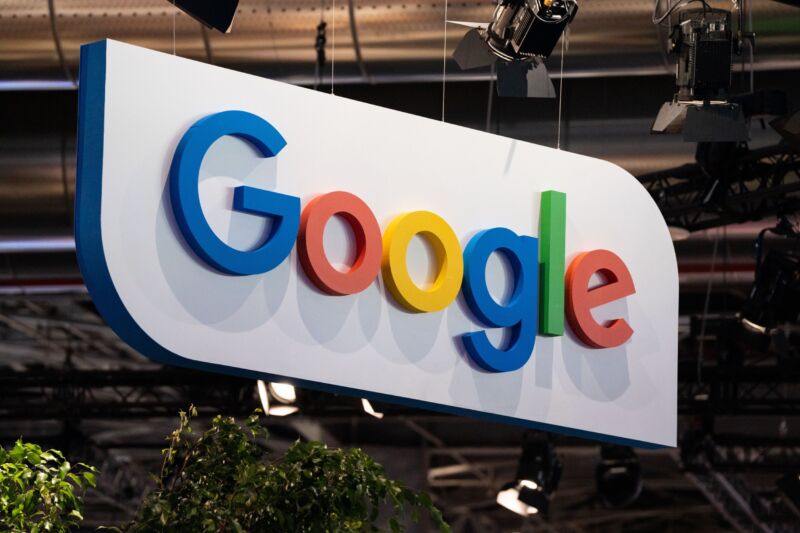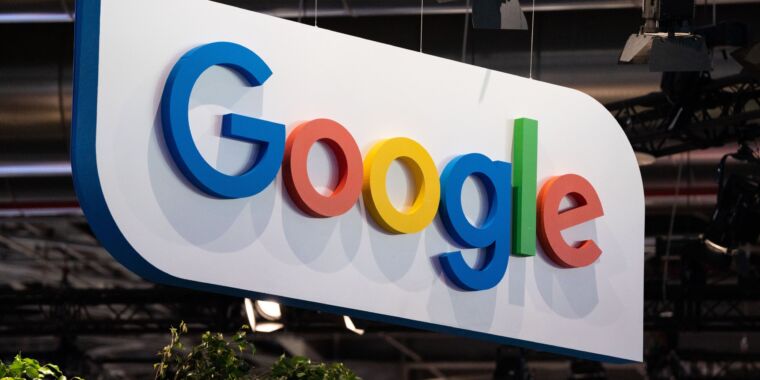
Getty Images | Bloomberg
In response to a new Canadian law requiring payments to news organizations, Google said it will remove links to Canadian news sources from Google Search and Google News for users accessing the services in Canada. Google’s announcement yesterday followed a similar announcement from Meta that it will end news access on Facebook and Instagram.
The new law’s “negotiation duty” requires major search engines and social media services to negotiate payments with news companies or groups of news companies. The law requires mediation and then arbitration if negotiations do not lead to a deal. The law is expected to take effect in six months.
“We have now informed the government that when the law comes into effect, we will unfortunately have to remove links to Canadian news from our search, news and discovery products in Canada, and that [bill] C-18 will also make it unsustainable for us to continue offering our Google News Showcase product in Canada,” Google President of Global Affairs Kent Walker wrote yesterday.
Google complained that Canada’s Online News Act “requires[es] two companies pay for simply displaying links to news, something everyone else does for free. The unprecedented decision to put a price on links (a so-called “link tax”) creates uncertainty for our products and exposes us to unlimited financial liability simply because we facilitate Canadians’ access to news from Canadian publishers. We’ve been saying for over a year that this is the wrong approach to supporting journalism in Canada and could lead to significant changes in our products.”
Canada is officially destroying Big Tech
Now that the law has been passed, the Department of Canadian Heritage is tasked with drafting regulations to implement it. In a tweetHeritage Secretary Pablo Rodriguez criticized Google’s announcement that it would pull news links in Canada.
“Big tech would rather spend money changing their platforms to block news from Canadians rather than pay a tiny fraction of the billions they make on advertising. Canadians won’t be bullied. Big tech isn’t bigger than Canada,” wrote Rodriguez. “The Online News Act is simple. Tech giants should pay news organizations fairly for their work,” Rodriguez also said wrote.
Google took a similar stance against an Australian “link tax” law in January 2021. But a few weeks later, Google agreed to pay for news in Australia. An Australian government report in December 2022 stated that the law “has been a success so far”, resulting in “more than 30 commercial deals between digital platforms (Google and Meta) and a cross-section of Australian news companies”.
Google also agreed to pay French news sites.
Similar US bill is controversial
In the US, Senators Amy Klobuchar (D-Minn.) and John Kennedy (R-La.) reintroduced their Journalism Competition and Preservation Act (JCPA) in March, which would provide an antitrust exemption “for online content publishers to collectively negotiating with dominant online platforms the terms on which content may be distributed.” The bill was presented to the full Senate on June 15 by the Senate Judiciary Committee in a vote of 14 to 7.
“We’ve seen a massive downturn in local news over the past few decades, driven in part by major online gatekeepers like Google and Facebook funneling away more and more of the ad revenue that news organizations have traditionally relied on to fund their work.” Senate Judiciary Committee Dick Durbin (D-Ill.). “The JCPA…will help reverse this trend by enabling news publishers…to collaborate and engage in structured negotiations with the largest online platforms regarding access to news content.”
The proposed US law was opposed by the tech industry and about two dozen advocacy groups, who wrote in a letter that the “law forces platforms to carry and pay for the content of any digital journalism provider that becomes part of a joint bargaining entity, no matter how extreme their content.”
The letter criticized a proposed arbitration process, noting that publishers and Facebook and Google have provided dramatically different estimates of the value of news for the online platforms. “The values are simply irreconcilable: by definition, the arbitrators will choose from massively inflated or deflated offers. The bill is also artificially one-sided — it precludes any advantage provided to a negotiating publisher or broadcaster for listing in search results or gaining reach on a And any negotiation that is structured so that one side cannot walk away from the table is inherently not “fair” or “equal,” the letter said.
California considers “journalism usage fee”
There is also a California Journalism Preservation Act (CJPA) that requires “journalism usage fee payments” from online platforms to news providers. Santa Clara University law professor Eric Goldman called the proposal unconstitutional and wrote a letter to the senators urging them to reject it.
In addition to arguing that the proposed state law would violate the First Amendment, Goldman said it is “unlikely that journalism will arise or be sustained at all” and “will only enrich journalism shareholders, even if they don’t issue payments.” about journalism.”
“The ‘arbitrages’ are likely to yield royalties in excess of profits from associated content, encouraging online services to categorically remove that content,” Goldman wrote. “If so, CJPA would make journalism counterproductive and further impoverish journalism operations by reducing their referral traffic.”

